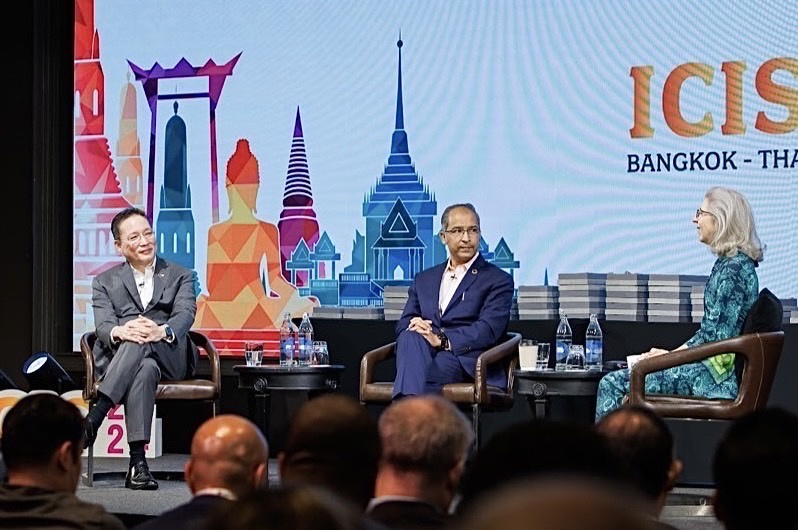Payong joined a fireside chat on "Digital Platforms for Emerging Economies: Bridging Gaps, Building Future" together with Balaji Ganapathy, Chief Social Responsibility Officer of Tata Consultancy Services. He shared that the bank has continuously adapted its digital infrastructure to keep pace with rapid technological changes. It decided to develop both mobile banking, which is a closed system, and open banking, or open finance, simultaneously to leapfrog ahead of competitors. The bank leveraged cloud technology to handle high transaction volumes and real-time processing, learning about the concept of open finance from international case studies, particularly from Santander and BBVA in Europe as well as from China, which had designed systems capable of efficiently handling massive user volumes. This enabled the bank to modernize and scale its systems to accommodate a rapidly growing user base.
The development of an open system enabled the bank to connect data and build an ecosystem that better serves customer needs. During the COVID-19 pandemic, the bank's digital platform helped the government distribute financial aid to citizens, particularly in remote areas and to the underserved population, using Digital ID to connect citizens with government services. This enabled swift and transparent aid distribution while also helping manage COVID-19 vaccination programs and assist those affected by the tourism downturn. These initiatives helped grow the user base from 3.5 million to 40 million within 3-4 years.
Payong emphasized that driving innovation isn't just about getting the design right but requires continuous learning and adaptation through lessons learned. This helps develop technologies and new services that precisely meet needs. Additionally, having a workable platform that can attract and retain users is crucial for creating sustainable economic value. The key to transformation is the operating model, which must be continuously adjusted and learned according to new technological needs and dynamics.
However, when driving technological adoption and digital innovation, without ensuring that both the organization and related communities can keep pace with these changes, it may result in a digital divide, leading to social inequality. The bank therefore prioritizes developing an ecosystem where all parties can efficiently collaborate to reduce technological access gaps.
As Krungthai Bank is a technology user, not a technology owner, it focuses on applying technology and innovation according to the bank's purposes, utilizing AI technology, including automation, predictive AI, machine learning, and generative AI to enhance bank operations and empower better life for all Thais.
Payong also noted that the banking sector faces ongoing challenges, predicting that in the next 5-7 years, at least 30% of banking sector workers will be affected by new technologies and innovations. The key question is whether banks can reskill employees fast enough to adapt to these changes. Moreover, rapidly adapting work processes and IT infrastructure to support changes will be crucial factors in enabling banks to compete and grow in the future. Additionally, efficiently securing funding for new technology investments must be completed quickly to support future growth.
Source: Krungthai Bank
